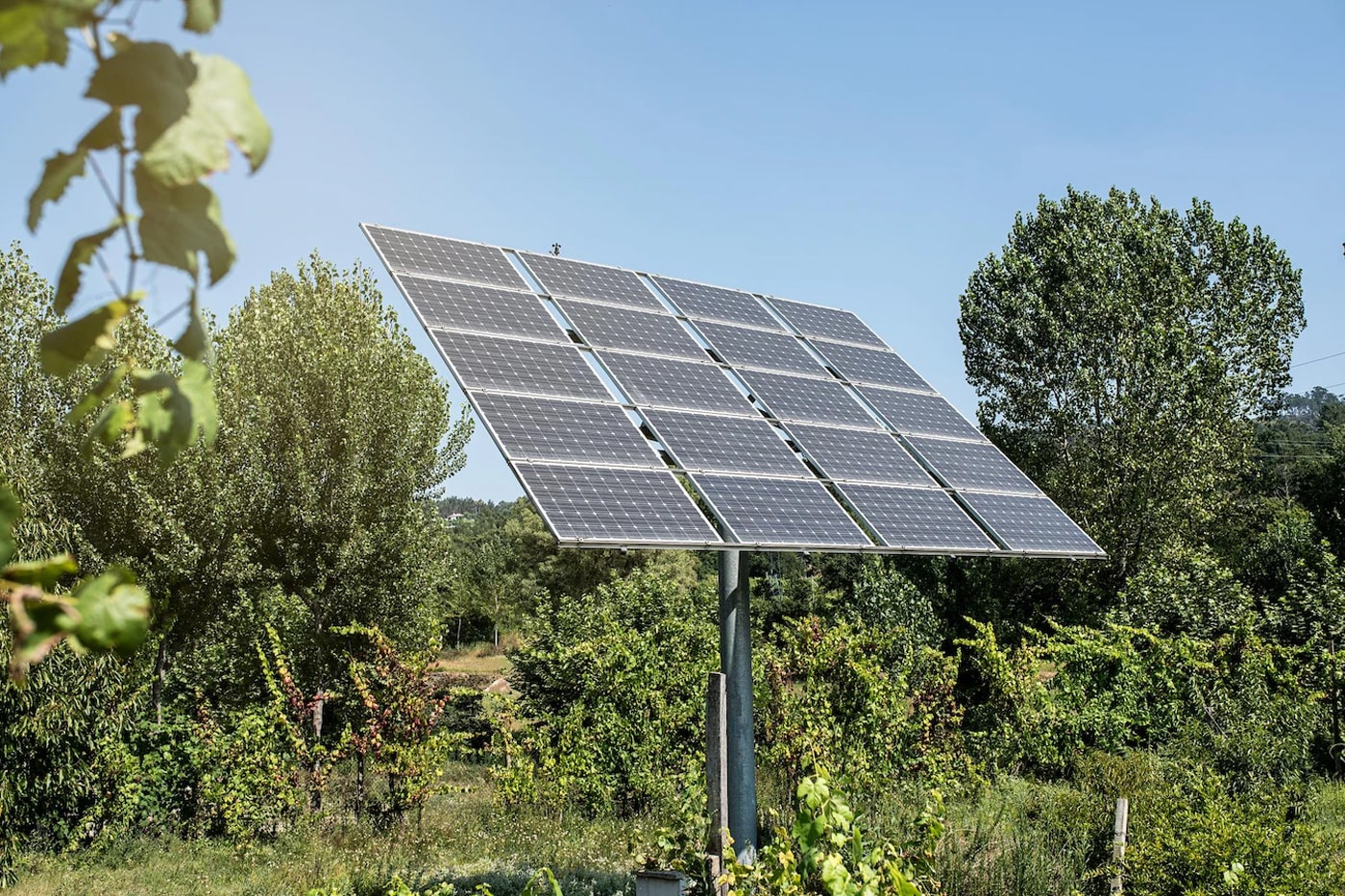Thinking of installing outdoor lighting in the garden but afraid of how much energy these will consume?
Outdoor lighting is an excellent touch to the space; it draws the eyes to specific areas while making the space look warm and inviting. Installing outdoor lights is also great if you’re hosting a party outdoors. That said, such installation requires a lot of energy. And this goes regardless of the garden’s size. Thankfully, there are energy-saving alternatives like solar lights. How about installing solar lights in the garden?
Know more about the different systems below:
Contents []
How Solar Lights Work

Solar lights must be installed in a system that connects the lights to an off-grid solar panel. During the day, the solar panels absorb power from the sun and charge the battery bank. By nighttime, a sensor turns on the solar lights, and the battery feeds power to these lights throughout the night. The system’s batteries work at a set time, which you will specify during the installation.
What’s so great about solar lights is many parts are entirely recyclable, like the batteries. This adds to solar lights’ eco-friendliness!
Types of Solar Lighting Systems
There are two types of lighting systems available on the market: low-wattage solar lights and commercial lighting systems. Low-wattage solar light systems are best used as landscape lighting. This system is often used to illuminate driveways, walkways, and home spaces like the garden.
Commercial solar lighting systems are designed to illuminate large areas like roadways, parking lots, entire commercial buildings, etc. The system consists of large, high-wattage solar lights. Commercial solar lighting systems are often customized to ensure proper operation. Usually, the solar panels and energy components are mounted at the top of a pole, and the solar lights are set at specific areas of the space for ample light coverage.
What is the lifespan of a solar lighting system?
How often you use the solar lights, the brands you choose, and how often you maintain the system will affect its lifespan. A typical solar lighting system consists of solar panels connected to battery packs and several LED solar lights. With proper care, solar panels will last up to 20 years. Solar battery packs have a lifespan of at least five years. LED solar lights have an average lifespan of 5 years.
Benefits of Solar Lights in the Garden

How will solar lights benefit your outdoor space and the environment? Below are just some of the many reasons why solar lights are popular among gardeners:
Renewable Energy: Unlike regular lighting solutions, solar lights do not depend on electricity to work. As long as the sun is shining, it will absorb enough solar energy to light up at night at no cost to you. You don’t have to pay a dime to illuminate your outdoor space at any time. During power interruptions, solar lights work so your home will stay illuminated without using a generator.
Eco-Friendly: Solar lights are eco-friendly because they use renewable energy to absorb and use power. These do not emit greenhouse gas like traditional power sources. Because solar lights get energy from the sun, you use less electricity to charge the batteries. The solar panels do not require electricity to charge the batteries. And when the power’s out, no need to buy fuel to make a home generator work. You can turn the solar lights on, and they’ll stay lit for hours.
Affordable: While the installation will initially cost you, you’ll save hundreds of dollars in monthly electricity bills by illuminating your home with solar lights. With solar lights, you’ll spend less electricity during nighttime, and you’re not spending any money charging the batteries during day time. No need to plug the solar panels to work; these will charge the batteries as long as the sun is up. Also, solar lights are affordable and work for years, so you are not spending a small fortune on maintenance.
Low Maintenance: Speaking of maintenance, solar lighting systems are almost effortless to maintain. Just clean the batteries when they get dirty and check if they are still working correctly once in a while. Battery packs will require replacement after 5 to 7 years, but with proper care, these will last for much longer. The solar panels do not require much upkeep save for the occasional clean-up to extend their life.
Accident-Proof: Solar lighting systems are less likely to cause shorts that may lead to overheating or fire. These systems do not use electricity; the solar panels charge the batteries using sunlight. The solar panels are designed to withstand high heat and can be set anywhere, so they’re very safe. There are also fewer cords in a solar lighting system, so they’re perfectly child and pet-friendly.
Safety: Illuminating the outdoors at nighttime will improve the security of your home. Burglars are less likely to break into a well-lit home. More and more homes are now using solar lights to illuminate their outdoor space, especially those with big backyard or garden. Many cities are also replacing old light bulbs with solar-powered street lights because these are affordable and last a long time. They also make neighborhoods safer.
Proper lighting: Solar lights enhance the look of your outdoor space while keeping the property safe. That’s why solar lights are quite a landscaping essential. They are also helpful in bad weather conditions and instances when electric lights are unsafe to use. During blackouts, you can use solar lights to illuminate your home. Solar lights can stay on all night if the batteries are well-charged. They will only turn off when the battery’s depleted. You can extend the battery life by dimming the lights at night.
Solar lights in the garden will save you hundreds of dollars in electricity bills every month. These fixtures are an investment, and maintenance is almost effortless! On the plus side, they’re eco-friendly!
For more gardening tips, check out the latest posts about home and garden.



